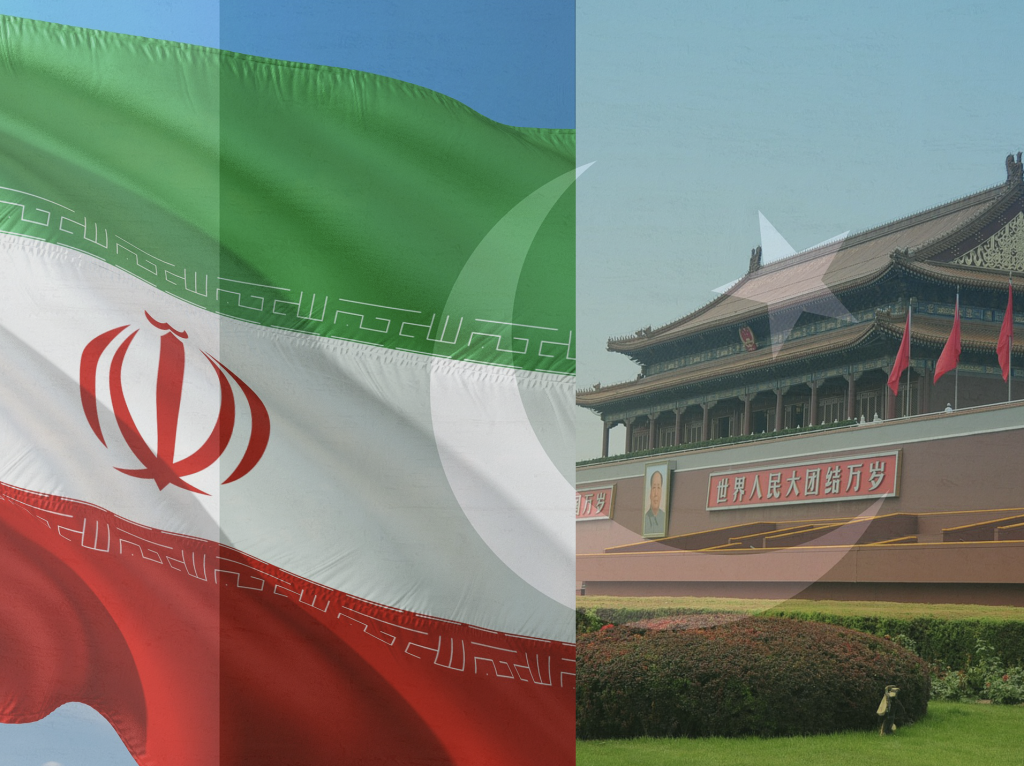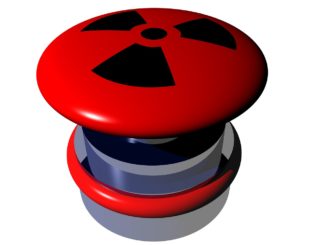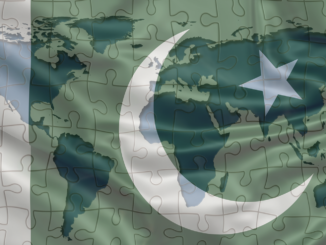
A long-term bilateral deal between China and Iran is ringing bells in Washington. By overstating the deal, the US media is again stirring up the tensions. A leaked draft of the deal published by the New York Times in July proposed that it would entail extensive economic cooperation that would open the arenas for strategic action. A week after the hot exchange in cold Alaska, Chinese Foreign Minister Wang Yi arrived in Iran for a visit that was reported by Iran state media as the signing of the deal under negotiations since 2016 calls for investments spread over 25 years in the trade, politics, culture, Infrastructure, cybersecurity, and other energy sectors in exchange for discounted oil supplies to Beijing. It is a relief at a time when Tehran’s regime is coping with sanctions imposed by the US and the disastrous impacts of Covid-19. For China, it is advantageous. Beijing has acquired an influence in the region and obtained access to crude oil. This deal would have substantial effects on the Middle East either directly or indirectly.
China will be best able to manifest this partnership as a new part of its Belt and Road Initiative (BRI), although the agreement appeared in an impromptu manner. Beijing saw Iran’s international isolation as a chance to establish its position in the volatile region of the Middle East. The document indicates the partnership to be strategic as comprehensive. The deal recognizes Beijing as a preferred customer of Iran’s oil. Furthermore, the deal is likely to frame cooperation in the military and defense sector, mentioning the creation of a joint commission for the exchange of knowledge, collective projects, and drills, and counterterrorism collaboration.
This agreement can be termed as a negotiating chip with the US by threatening to expand China’s footprint in the region. This deal also demonstrates that former President Trump’s maximum pressure policy against Iran failed. Subsequently, that has led to Iran’s increased interest in the ‘Look East’ policy. The United States and other powers that are party to the Joint Comprehensive Plan of Action (JCPOA) are in conflict with Tehran over who should return first to the accord, which was dumped by the former U.S President Donald Trump in 2018.
Tasnim News Agency published an article titled “8 answers to questions about the agreement between China and Iran” that said that due to US sanctions it was fine not to publish the features of the deal. Concerning the various figures speculated about the deal between Iran and China, some mentioning it as a multi-trillion dollar deal, Tasnim scribed that there are no official numbers or details. The article also expressed that it is more of a “road map and framework for long-term cooperation” than a certain deal.
China is engaged with five principal partners at the moment in the Middle East, Iran being one of them, and the remaining four are all U.S allies. Saudi Arabia is the largest provider of crude oil to China. The UAE is the second most important and serves as a logistics hub for Beijing’s BRI. Egypt is important in terms of transportation through the Suez Canal. China enjoys close ties with Israel as well, collaboration on security, and counterterrorism, and investments amounting to USD 1 billion in the start-up ecosystem. Iraq is China’s third-largest oil supplier. Under that, China is unlikely to side with Iran in its geopolitical struggles in the Middle East at the expense of jeopardizing with others. At the same time, this comprehensive strategic partnership is indicative of China’s fear that the United States may put a burden on these countries to not supply the energy it needs; so, the deal remains both a barrier and an insurance policy.
The deal is bent in favor of China and is influential over Iran’s foreign policy. It is equivalent to selling off the country amid great pressure by the sanctions inflicted by the west. But for economic experts in Iran, this is the only viable option that can help restore the sinking oil production and maintain its position as a key player in the energy sector. The deal reeks of desperation for Iran but can be used as a bluff negotiation or a diplomatic way of seeking concessions from Washington. This cooperation is distinguished in the sense that both countries have global and regional desires and have conflictual relationships with the United States. Chinese-Iranian ties will surely reform the political landscape of the region further undermining U.S rule.
This agreement could also prove beneficial for Pak-Iran relations in significant ways. One of the major reasons is, for the smooth completion of the China-Pakistan Economic Corridor (CPEC) Beijing is likely to subvert any tension directed towards it. The agreement is likely to raise the economic interests of China that would enhance the need to maintain peace and stability in the region to safeguard the projects. China at the center can ensure the smoothness of ties between both countries. Furthermore, China’s influence can aid Pakistan in deterring the pressure it might get from Saudi Arabia to distance from Iran. Iran’s Chabahar Port is another key avenue to deter any infiltration that could be used to instigate trouble in Pakistan. Pakistan has to make sure that its efforts to enhance bilateral ties are not entitled to joining the anti-Saudi Arabia camp.
Admittedly, Under the new Biden administration if the restoration of the JCPOA takes place then that could inflame the tensions between Pakistan and Iran. If India tries to enter the Iranian market and capitalizes on sanctions relief then Pakistan’s concerns of India using Iran as a launchpad for covert intelligence operations inside Pakistan might double. As was confirmed in 2016 when alleged spy Kulbhushan Jadhav was arrested after entering the country via Iran. And because of that, the government released a dossier detailing Delhi’s link to terrorist groups operating in Pakistan.
If the projects underlined in the China-Iran deal go smoothly then China’s role in the region is likely to be greatly enhanced alongside Pakistan’s western border. For all that to happen, Pakistan needs to tread carefully as the China-Iran ties enter the development phase and maintain a balanced position.
![]()




Be the first to comment